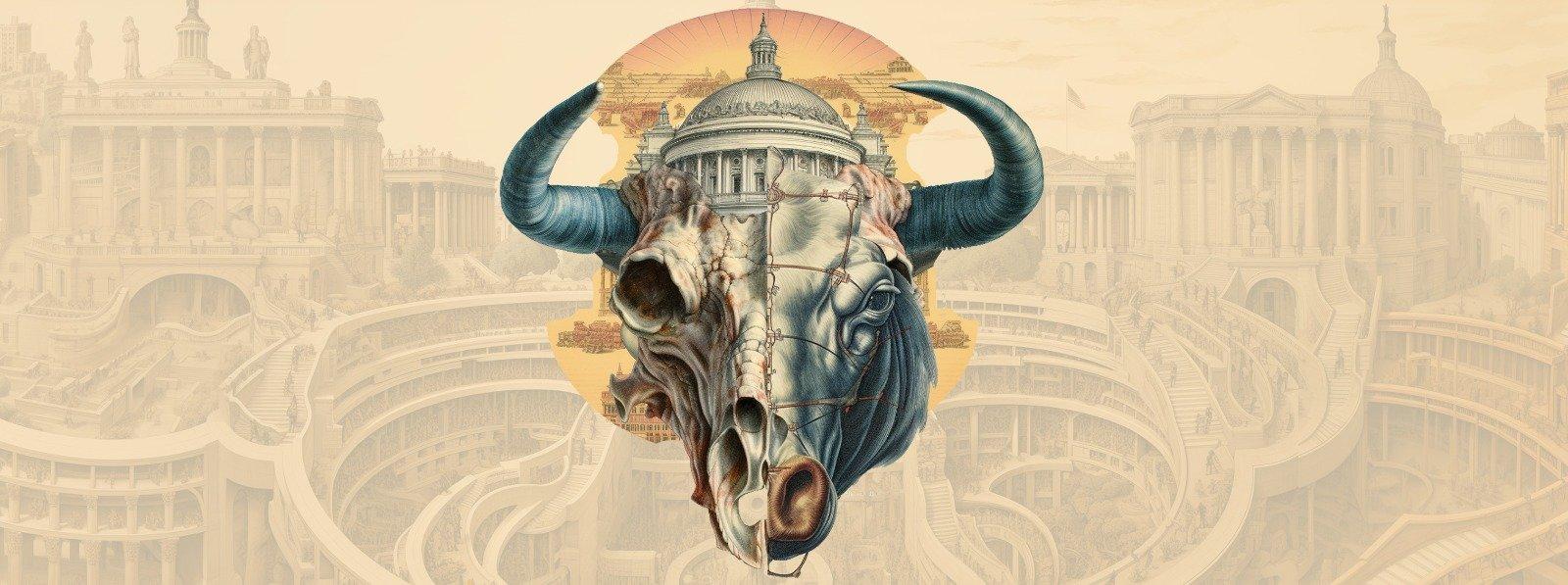Opening Thoughts
Facing the fierce winds of climate chaos, of growing geopolitical instabilities around the world, of declining trust in democratic institutions, and of pandemic futures replete with bacterial agents and viral thresholds, it is becoming increasingly urgent to revisit conversations about belonging and democracy from less familiar vantage points, and to interrogate the citizen-subject beyond the confines of the humanist liberal world order that usually frames it.
In this short essay, I try to do just that: to see democracy (and politics in general) as a posthumanist process, already more-than-rational, already composed of more-than-human actors, already framed within agonistic tensions and intensities too unwieldy for anthropocentric sense-making, and already tied with colonial enterprises that face counterhegemonic pressures today. Posthumanism is a field of ideas that rejects anthropocentric universals. The confluences of diverse concepts, tensions, and conversations that characterize this field tries to think about the world in ways that do not privilege human actions over and above other worldly processes. Instead of being a fait accompli, a final product, transcendent and above material processes, the human is a relational and ongoing co-production within ‘assemblages’ (Deleuze). The human is provisional, tentative, always already exposed to the infiltrations of the non-human and the behaviour-modifying instigations of architecture, texture, colour, heat, and other material constraints. Posthumanism rejects the anthropocentrism that is rife in our accounts of ethics, language, and politics – and notices the inadequacies of humanist accounts. It seeks to engender new ways of thinking about might open up new considerations and performances in troubling moments.
I make the case that the citizen has never been human. In doing so, I make the citizen less recognizable, less available, but no less forceful in the ways it enlists, shapes, and deploys subjects. I do this not for the fun of it, I can assure you. A hopefully generative distinction between the citizen and the citizen-subject permeates the text of this essay: while the latter refers to the human individual, the former is all the conditions (ecological, sociomaterial, architectural, structural, conceptual, climatic, and so on) that make the citizen-subject possible. By transversalizing the citizen as a more-than-human ecology within ecologies, by transposing citizenship into a more-than-human territory rather than seeing it as an attribute of discrete human individuals, new lines of inquiry emerge: it becomes possible to see political projects and governance systems (such as liberal democracy) as involving more than human motivations, human understandings, and human actors – a worthwhile gesture given the compulsions of our times.
By thinking of the citizen as a more-than-human territory, instead of an isolatable individual, I suggest that the citizen-subject is under siege – hence, the ‘shrinking citizen’. The ‘shrinking citizen’ describes the ways in which the human-producing, earth-flattening, liberal conditions implicated in the emergence and dominance of the citizen-subject, and which constitutes an ecology of subjectivity and subjecthood, experience decay due to the intensification of posthumanist processes. Here, in the cracks of the shrinking citizen, lies a stunning invitation to make sanctuary in post-democratic times.
No more “I love you’s”; the language is leaving me in silence. Changes are shifting outside the words
—Annie Lennox
Editor's note: The ideas expressed in this blog are not necessarily those of the Othering & Belonging Institute or UC Berkeley, but belong to the authors.





